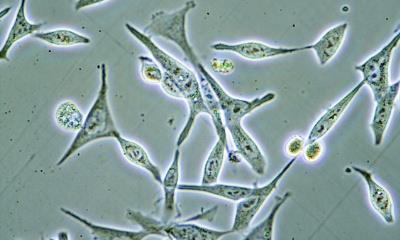The NHS must be bold now and adopt large-scale geriatric assessments across cancer care, says Ciarán Devane, as they will save time, money and benefit patients in the long term

A well tested, robust clinical tool that cuts cost, improves patient outcomes and reduces the risk of being sued: you would expect such a thing to be on every commissioner’s checklist.
‘Cancer mortality rates for older people in the UK are among the worst in Europe and getting worse’
In reality, the comprehensive geriatric assessment (CGA) is woefully underused, including in cancer care. You don’t have to look far for reasons why. Many cancer services staff receive no training on the specific medical needs of older people. Where training is given it is often a second thought or only delivered at undergraduate level.
The current approach to geriatric assessment and training in oncology must change. In many ways, cancer care is elderly care and vice versa.
Most people who get cancer are older. Six out of 10 new cancer patients are aged 65 and over. The crossover between the two fields will only become more pronounced as time goes on. By 2040, nearly one in four people aged 65 and over will be living with the disease.

Legal and moral duty
To improve the way that older people with cancer are assessed, treated and supported during a time of financial austerity, we must guide our decisions with evidence. Macmillan has completed a pilot programme, run in partnership with the Department of Health and Age UK, involving more than 700 patients from 14 NHS trusts.
‘Adopting wide-scale geriatric assessments across cancer care is a daunting prospect, but we must have courage’
The pilot shows clinical input from elderly care specialists is badly needed in cancer care and the CGA could be feasibly delivered in cancer services.
They also illustrate the scale of the challenge. At one pilot site, 70 per cent of patients screened for a full CGA had three or more comorbidities. All of those who went on to receive the full CGA required at least one intervention.
Services designed for people with the most complex needs potentially benefit everyone. Services that fail to provide for conditions associated with ageing, such as sensory or cognitive impairment, potentially discriminate.
In October this year, the age-related provisions of the 2010 Equality Act were extended to include services. Now it is not only a moral duty to give older cancer patients the best possible care, it is also a legal one.
The change in law was a long time coming. Cancer mortality rates for older people in the UK are among the worst in Europe and getting worse. Nearly half of those involved in the treatment of cancer patients say ageist stereotypes and assumptions believed by their colleagues result in patients not getting the most effective care.
Long-sighted decisions
‘The challenge of caring for elderly cancer patients does not fall to healthcare alone’
I’m aware that adopting wide-scale geriatric assessments across cancer care is a daunting prospect. In our pilots, assessments often identified unmet physical, psychological and social support needs, each leading to further referrals to other services.
But we must have courage and make long-sighted decisions. Embedding a new approach will take time and money, but it will save both of these in the long term.
We must act now. With each month that passes our population ages a little more and the opportunity for making sustainable, proactive changes slips further away.
The challenge of caring for elderly cancer patients does not fall to healthcare alone. Our pilots demonstrate how well the voluntary sector is placed to deliver community-level support. Charities and others often have better knowledge of local support services than healthcare staff, who may be dealing with patients from many local authority areas. We must address any medical, social or financial issues that could prevent an older patient taking up treatment.
We will all experience ageing differently. What must be consistent is the right to be treated based on biological age, not date of birth.
Ciarán Devane is chief executive at Macmillan Cancer Support


























1 Readers' comment